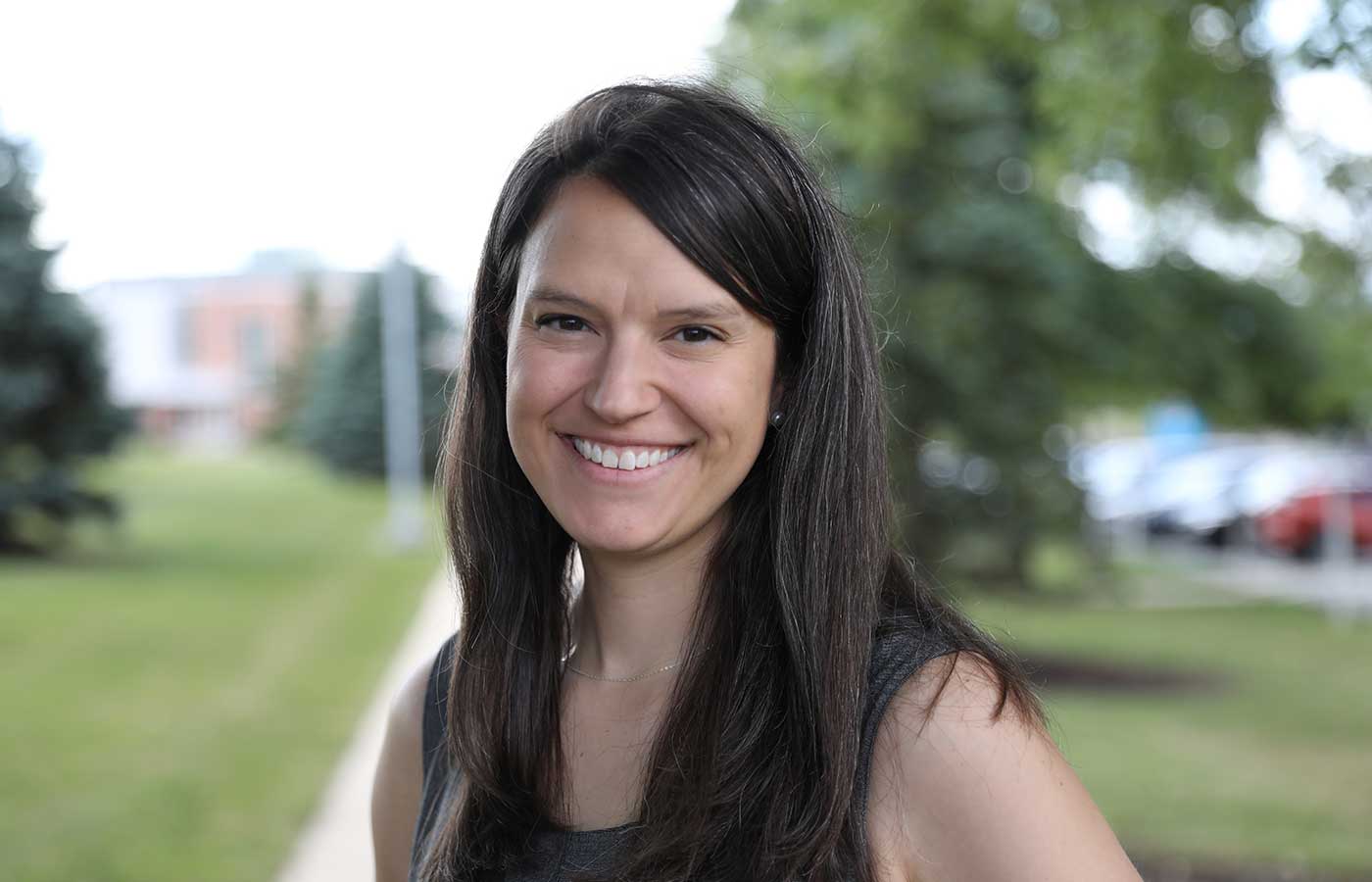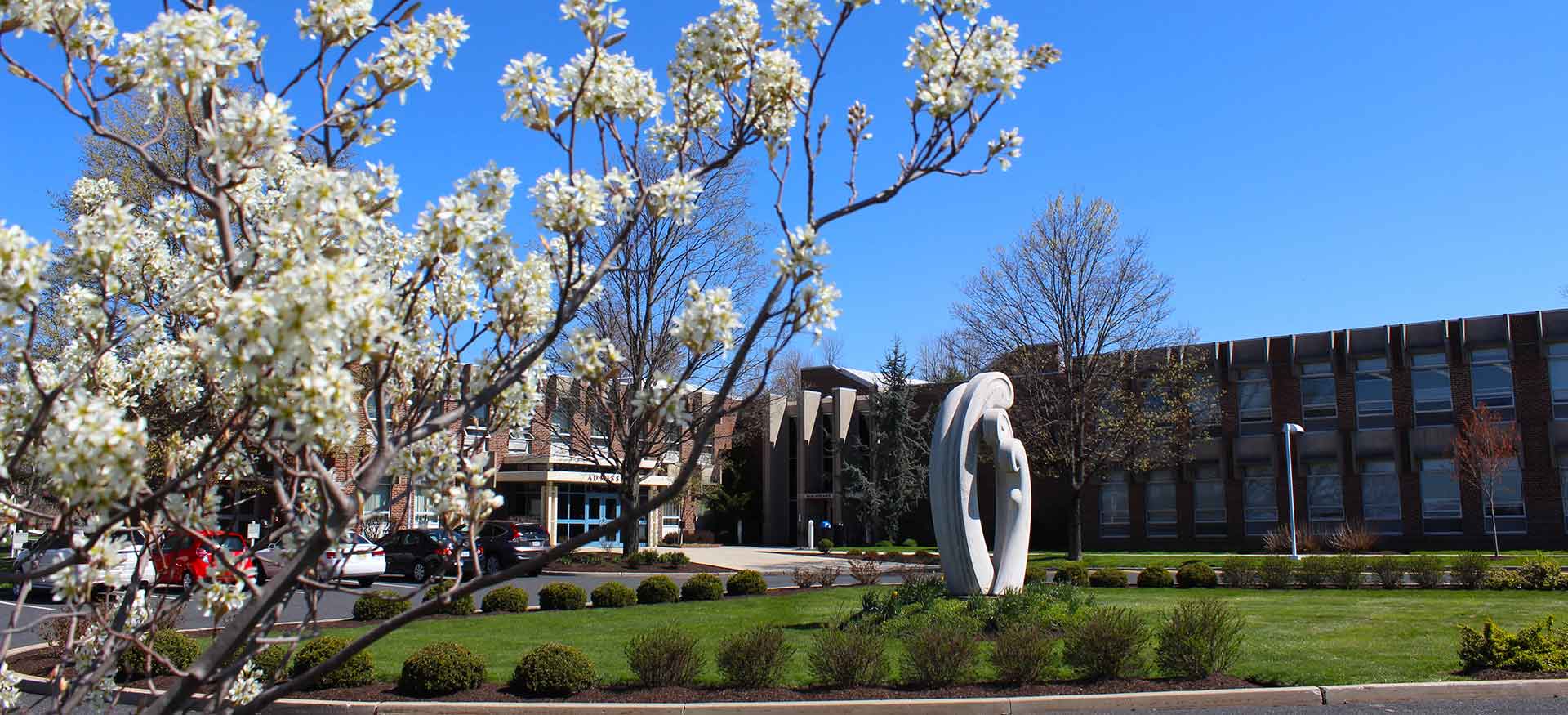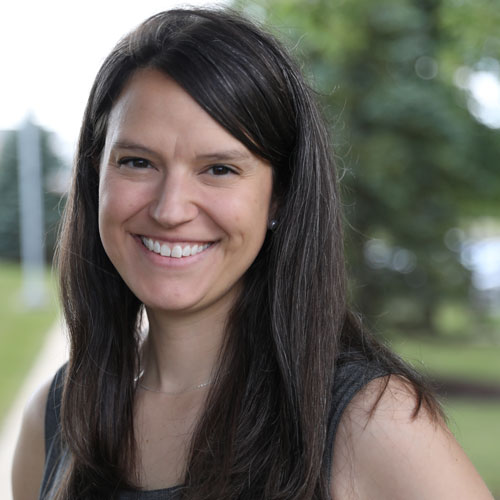Frontlines of Change: Dr. Carrie Ellis on Gender Equality in Research

Our last but certainly not least Faculty Feature Friday during Women’s History Month is Dr. Carrie Ellis, assistant professor and department chair of Sport and Exercise Physiology.
Name: Carrie Ellis, PT, DPT, OCS, CSCS
Role: Assistant professor and department chair of Sport and Exercise Physiology
Number of Year(s) at DeSales: 4 years
Trexler Library: Tell us a little about yourself! What motivated you to pursue physical therapy and sport / exercise physiology?
Carrie Ellis: I knew I wanted to help people, and the fun thing about being a PT is being able to heal with my hands and exercise. I served as an active-duty Army Physical Therapist in the 82nd Airborne Division and Special Operations at Fort Bragg before transitioning to teaching.
Trexler: What is the best part of your role at DeSales while working with students / athletes?
Dr. Ellis: Being able to influence future physical therapists and other exercise professionals. It’s always amazing to see the transformation our students undergo from when they arrive as nervous first-year students to confident healthcare professionals. I’m honored to be part of that process.
Trexler: What impact has a library or Trexler Library had on you as an educator?
Dr. Ellis: I am fortunate to teach one of my classes, Research and Statistics in Exercise Physiology, right in the Trexler Library. I love being able to draw on all the wonderful resources that the library has (The technology! The Writing Center! Interlibrary Loans! Kathleen Zamietra!) to help the students learn more about the research process.
Trexler: What would you like to see changed or improved upon in women’s sports or concerning gender equality in athletics?
Dr. Ellis: I think there have been incredible strides in women’s sports and gender equality in athletics in the past few decades. Still, one area lagging behind is research focusing on female athletes. Just 6% of research in this area focuses on female athletes! Physiologically, women are very different from men, and it’s hard to make recommendations for female athletes without research on this population.
Trexler: What female public figure, past or present, inspires you and why?
Dr. Ellis: Ruth Bader Ginsburg. I think her history working for gender equality and women’s rights helped change how women live in this country and paved the way for Title IX. Personally, her ability to be a successful professional woman while still balancing being a wife and mother is very inspirational. She is quoted as saying, “each part of my life gave me respite from the other,” which resonates with me and reminds me to be present in each part of my life, both at DeSales and home.
Trexler: What does Women’s History Month mean to you?
Dr. Ellis: Women’s History Month means thinking about how far women have come by celebrating the achievements that women, both past and present have made, but also recognizing how far we still have to go. There is something that we all can contribute to keep moving gender equality forward. Personally, I’ve tried to complete research that includes women. I have completed two studies with the Women’s soccer team, including one that recently looked at improving nutrition for these athletes. For women, not getting adequate nutrition can significantly affect their lives, including reproductive health and developing osteoporosis. Another one of my student research groups looked at how women perform the deadlift exercise, and the results of this study will be published in the near future. Small steps, but I think that small things done consistently can make a big change.
Thank you for following along with us as we celebrated our inspiring and dedicated women faculty and staff members this month! History is being made every day in big and small ways on our campus. Tune in next month to see who we are featuring next!






